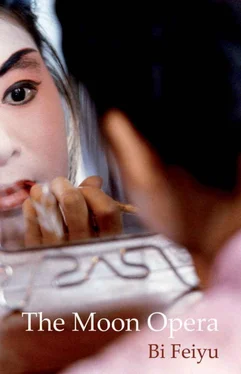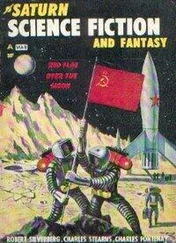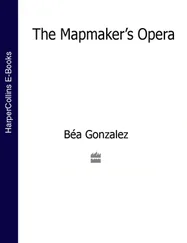In the second semester of her third year, Chunlai switched to the Qingyi role. She bore no resemblance to Xiao Yanqiu in her speaking voice, but when she sang, she was an echo of her mentor. The other teachers quipped that Chunlai was born to be Xiao Yanqiu’s rival. When Yanqiu first tried to talk Chunlai into switching from Huadan to Qingyi , the girl had said no. Yanqiu kept working on her, but she wouldn’t budge. Finally, not knowing what else to do, Xiao Yanqiu uttered a phrase that became and remains a source of amusement at the academy. She pulled a long face and said to Chunlai, “If you won’t study at my knee, then I’ll get down on my knee and beg. What do you say?” What could Chunlai say, when her teacher did something like that?
The people at the academy still recalled how Chunlai looked when she first arrived. She spoke with a heavy country accent and dressed in clothes with ridiculously short sleeves and cuffs, leaving her calves exposed above her socks. Her cheeks pruned up each winter, with red creases lining her face; no one would have believed that she would grow up to be such a beauty. She was a perfect example of the common wisdom that a girl changes dramatically at eighteen. Who could have predicted that such a rare opportunity would come to Xiao Yanqiu? And who would have thought that Chunlai would be so lucky as to be part of it?
In her twenty years at the academy Xiao Yanqiu had taught legions of students, but there hadn’t been a true singer among them, not one who might carry on the tradition, let alone become famous. Considering herself to be a failure as a teacher, she nearly gave up. But not quite. Of the many kinds of pain one can suffer, the worst is being forced to face unpleasant realities. And that is what Xiao Yanqiu had to do. On her thirtieth birthday, she knew she was as good as dead. Then, over the next ten years, she sat at her mirror watching herself grow older day by day, witnessing the slow death of the celebrated Chang’e. And there wasn’t a thing she could do about it. Her anxieties actually sped up the aging process; she could not hold off death with her hands nor claw it back with her fingernails.
Time is cruel to a woman. It is merciless and relentless. Thirty years old! Dear Father! Dear Mother! On her thirtieth birthday, she had her first taste of liquor. It was only a small cup, but enough for her to get truly drunk. She cut her kitchen apron into two pieces and, holding one in each hand and pretending they were the long, loose water sleeves of the opera costume, she waved the white, greasy cloth and stumbled around the kitchen, sending bottles of cooking oil, soy sauce, and vinegar crashing to the floor; a shard of broken glass cut her hand and stained the makeshift sleeves with drops of fresh red blood. The red and white water sleeves were flung into the air, then floated down, again and again. Miangua ran into the kitchen and grabbed her, but she looked at him vacantly and called him “My dear Mama.” She recited the line to him in perfect pitch and tone: “My—dear—Ma—ma!” Seeing she was drunk, and fearful that her shouts would be heard, he covered her mouth with the blood-spattered apron. Yanqiu breathed deeply, her diaphragm rising and falling as she expelled the muffled roars of a wild animal. His heart ached to see her like this and he called her name, over and over. Though she turned her head to look at him, she could not speak. Yet the words emerged from her diaphragm, he could see that. She was calling from her diaphragm: “My—dear—Ma—ma—a—a!”
“A thousand Sheng , ten thousand Dan , but a good Jing is hard to find.” So goes an old, but inaccurate saying passed down by performers from days long gone—one that found no support from Xiao Yanqiu. Granted, it is almost impossible to find a Hualian among all the Sheng , Dan , Jing , and Chou roles, but there certainly aren’t thousands of performers in any one category. From earliest days, Qingyi performers may well have numbered in the thousands, but a mere handful understood the role well enough to grasp its true essence. To be sure, a Qingyi must have a superb voice and an outstanding figure, but in the end, what makes an exceptional Qingyi is the type of woman who takes on the role, not how she sings or how she looks. Anyone born to play the role of a Qingyi , even a man six feet tall, must abandon the idea that his bones are made of clay and start acting as if his body were made of water. No matter which pier you drift to, you are still a cloud formed by water. On the stage, the Qingyi is not a succession of female roles, is not, in fact, even a gendered role. It is, in essence, an abstract concept, a profound form, an approach, a method, a significant natural gift. In a way, a person does not grow into being that woman, for she is not a product of the passage of time, nor can she be characterized by marriage or the biological stages of childbirth and nursing. A woman is just that, a woman. She cannot be learned nor can she be purged from a body. Qingyi is, one can almost say, a woman in name only; or, better yet, Qingyi is a woman among women, the ultimate woman, and a touchstone for all others. She appears on the stage, where she sings, signals with her eyes, and gestures with her hands—all components of so-called “performing” or “acting,” yet never more than simple movements from daily life. She makes you feel that life is just like this—every woman walks like this and talks like this. If you are not that essential “woman,” even if you were sitting on a sofa at home or perched at the head of your bed, you would be a bad performer, because you would be “acting,” and the more you acted, the less you would look like “her.” Hualian , the male painted face role, is the exact parallel to the Qingyi . Hualian is the quintessential man; or, we might say, the quintessential profile of the quintessential man. Everything about man should be simple; body and soul are but a mask. So simple it is an exaggeration, so simple it is endless and changeless. Hence, the decline of Peking Opera began with the decline of man and woman, hand in hand; it was the degeneration of the sexes.
It was not easy for the gods to create a Hualian , and just as hard for them to create a Qingyi . Xiao Yanqiu was one of the Qingyi rarities; Chunlai was another.
Xiao Yanqiu saw hope when Chunlai appeared, for the girl was all the reason anyone needed for Chang’e to exist. Like a grieving widow clinging to her only child, Xiao Yanqiu knew that her legacy would live on so long as there was a Chunlai. That was her final compensation from the gods, the last comfort they held out for her. Chunlai had just passed her seventeenth birthday and was, strictly speaking, still a girl. But she had never really been a girl. In a way she had been born a woman, an enchanting woman, a bewitching woman, a woman who could plunge you into bottomless sorrow with a single look. That is not to say she was precocious. She was just born that way. Chunlai entered the golden age of the Qingyi in her seventeenth summer, with a figure that had all the things it should have had and none it shouldn’t. Her waist was graced with a natural glamour that lent her a bewitching quality. A unique and wondrous light sparkled in her eyes. She did not just look at something, she cast a glance—a sidelong one here, a wistful one there. Her eyes embodied the ideal of expressing a reluctant parting and a coquettish sadness of unknown origin. When they were in motion, one would think that she was expressing herself on stage, for she was endowed with a talent to bring the most dramatic pattern down to the level of daily life and the special ability to elevate quotidian movement to the stage. For Chunlai, the adolescent change of voice occurred so smoothly that no one even noticed. For some performers, this change is the gate of hell, a career-ending barrier. They are in perfect singing form at their evening bath, only to discover upon awakening the next morning that demons have stolen their voices.
Читать дальше












